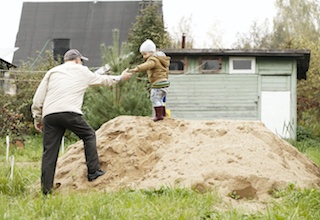 Fostering well adjusted, successful children is a joint effort. While young children’s initial beliefs about right and wrong are often fostered at home, home is only one of the many influences children experience on a daily basis. When children watch television, listen to radio, and surf the web, they are bombarded with information. Moreover, many children’s home environments do not appropriately socialize them for the world. The reality is that plenty of children are coming to school and displaying inappropriate behaviors. This not only impacts the learning environment, but it provides proof for the need of character education in learning curriculum.
Fostering well adjusted, successful children is a joint effort. While young children’s initial beliefs about right and wrong are often fostered at home, home is only one of the many influences children experience on a daily basis. When children watch television, listen to radio, and surf the web, they are bombarded with information. Moreover, many children’s home environments do not appropriately socialize them for the world. The reality is that plenty of children are coming to school and displaying inappropriate behaviors. This not only impacts the learning environment, but it provides proof for the need of character education in learning curriculum.
According to research, character education programs have a positive effect on student achievement, classroom behaviors, and long term test scores (Benninga et al., 2006; Zins et al., 2004). Also, when these programs include parental involvement the effects are even more beneficial. Sometimes parents need support, and when they are given the support needed they are better able to raise their children. Values such as respect, kindness, courage, self-discipline, compassion and dependability are lifelong assets and they are best taught through modeling.
For Educators
According to the Center for the Advancement of Ethics and Character at Boston University, several things can be done to promote Character Education in the learning environment:
Hang pictures of heroes and heroines in halls and classrooms.
Institute a student-tutoring program.
Be vigilant about preventing and stopping scapegoating of one child by other children.
Create recognition programs that acknowledge ethical behavior.
Create a code of behavior for your classroom (and school) to which students and teacher agree.
Invite parents to observe and contribute to your classroom.
Choose a personal motto and share it with your students.
Promote a “virtue of the month” and study it.
Share a personal hero and tell the students why he or she is your hero.
Regularly weave into your discussion of stories and history and other subjects asking, “what’s the right thing to do?” and follow up with a discussion.
Help students to see that the “good” in students is more than academic success.
Treat ethical issues like other intellectual issues. Practice getting the facts, gather evidence, weigh consequences, and make appropriate decisions.
Structure opportunities for your students to do service in the community.
Lead by example.
Don’t allow unkindness of any kind in your classroom.
Do not permit swearing, vulgar or obscene language in classrooms or anywhere on school property.
Involve parents in student misbehavior through notes, calls, visits.
Write, call, or visit parents to praise their children.
As Parents
Get involved. Ask your child’s teacher or principal whether their school has a character education program. If the school has a program, find out how well it is working and what you can do at home or as a volunteer at school to support the program.
Take action. If your child is learning bad habits or shows a lack of discipline, express your concerns about bad habits to your child’s teacher or bring up the topic at the next parent-teacher conference.
Lead by example. Display values in your actions. Talk to your child about good character, and model the behavior you want them to have. Talk to them about the good character of others and reward them for their ethical behavior.
Be preventative. If things are going on in the home environment that are affecting your ability to properly lead by example, seek help. Talk to someone: a teacher, a family member, or even a counselor.
Resources:
Benninga, J., Berkowitz, M., Kuehn, P. & Smith, K. (2006). Character and academics: What good schools do. Phi Delta Kappan, 87, 448-452.
Zins, J. E., Bloodworth, M. R., Weissberg, R. P., & Walberg, H. J. (2004). The scientific base linking social and emotional learning to school success. Building academic success on social and emotional learning: What does the research say, 3-22.





